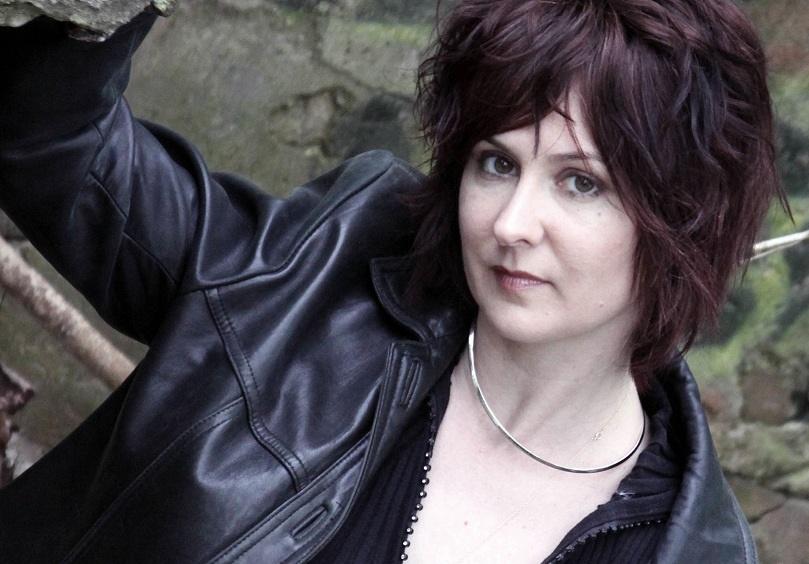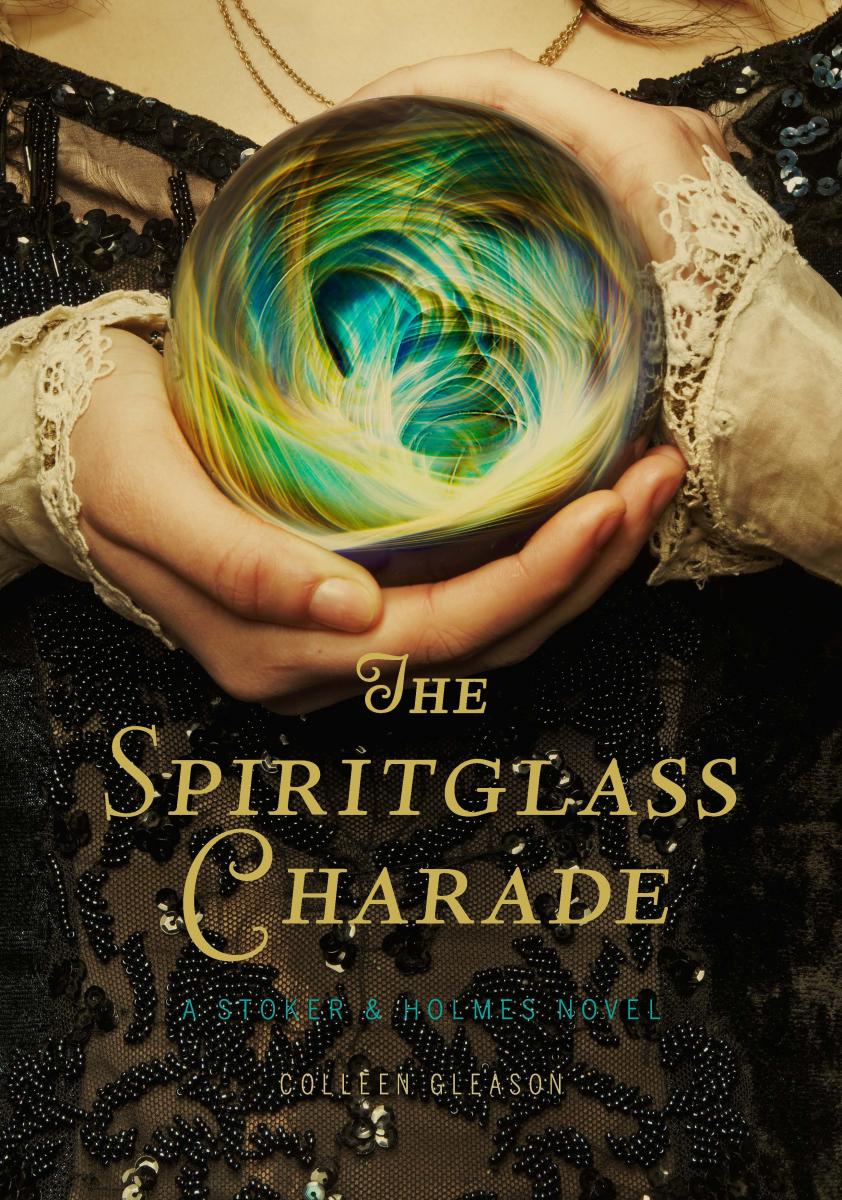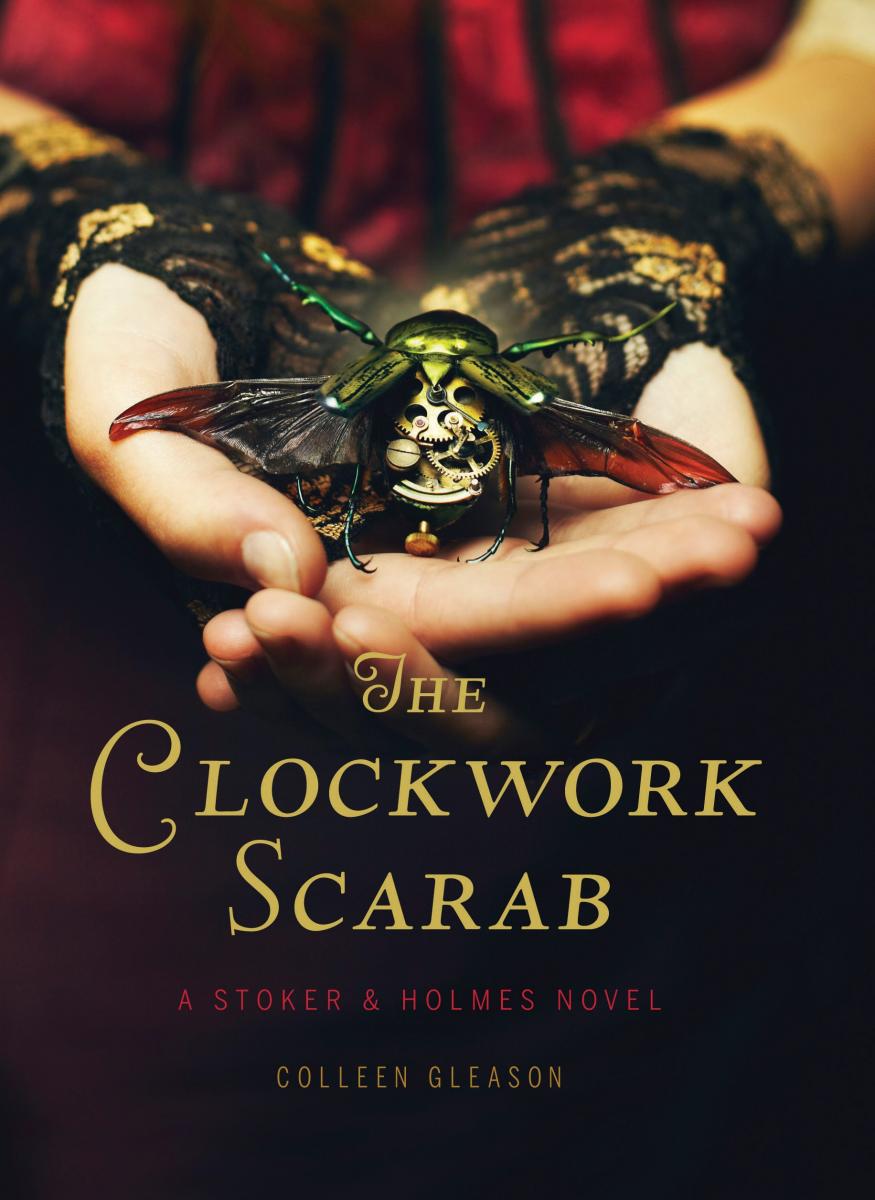
How's this for a book pitch? Steampunk. Vampires. Sherlock Holmes.
Author Colleen Gleason's latest series, Stoker & Holmes, lures readers with this irresistible trifecta of thematic elements, following Sherlock Holmes's niece and Bram Stoker's sister as they solve mysteries in a steampunk London setting.
It's the latest dark, atmospheric and undeniably romantic venture from Gleason, the New York Times bestselling author whose tomes—also written under the pen name Joss Ware—have explored post-apocalyptic worlds, the art of vampire hunting during the era of Jane Austen, medieval power struggles and gothic mystery.
When Gleason's first Stoker & Holmes novel, The Clockwork Scarab, came out last November, The Horn Book Magazine described it as "the geek meets the goth." Next up in the series is The Spiritglass Charade, a narrative that weaves in a powerful blend of spiritglass, spiritual mediums and a vampire ascent. It hits shelves in October.
We spoke with Gleason about targeting her new series to a young adult audience, why writing strong female characters is important, our cultural obsession with vampires, and what it's like to go steampunk.
Before becoming a writer, you worked in sales and marketing. How and why did you make the transition out of that, and into professional writing?
I'd always, in the back of my mind, wanted to write books. In fact, I spent much of my free time working on a number of different manuscripts while going to grad school, getting married and having children—while working full-time in sales and marketing. When I sold my first book, I was fortunate enough to be in a transitional place between jobs, and that gave me the opportunity to put my efforts into writing full-time. And the rest, as they say, is history.
Why did you start using the pen name Joss Ware?
I was launching a brand-new series with a new publisher. The new series (dystopian-set paranormal romances) was so completely different from my previous series (a historical vampire hunter series) that my new publisher wanted to launch it without any connection to my previous series (and publisher), in order to make sure the readers weren't confused and expecting another vampire hunter story. While I'm certain most readers are perfectly capable of looking at a book and determining that it's a different story or genre than a previous series from an author, I was certainly willing to work with my publisher in that regard, and happily chose the pen name Joss Ware for the new series.
You've tapped into many different tropes in your books—from vampires to medieval romance. Where do you draw inspiration from in coming up with your themes and narratives?
I'd say that all of my books have the same underlying themes and core stories—they're just retold in different settings and genres, so I'm not really doing anything terribly different from book to book. I always seem to gravitate toward themes of sacrifice and loyalty, as well as love and respect among partners—and of course good versus evil. Those are such compelling and familiar themes that it's so much fun to take them and find a new way/place/genre to retell them . . . but with my own twist.
As someone who's written extensively about vampires, what's your take on the runaway success of vampire fiction in recent years, including (yes) the mega-success of Twilight? What zeitgeist did this tap into? 
I believe the delight in vampires stems from the fact that this type of creature—at least as portrayed in most popular culture—looks and seems to be human like the rest of us, but has secrets (sometimes good ones, sometimes bad ones). They're a danger that, while compelling and frightening, aren't realistic. We can be fooled and frightened and intrigued by these creatures—these creatures who feed on mortals in a most intimate and seductive fashion—and yet know we will never truly be required to face them. That is pure escape, and it's wrapped up in a sort of forbidden, seductive and erotic environment.
You've just launched the Stoker & Holmes series for young adults, about the sister of Bram and niece of Sherlock. Why did you decide to target a younger audience?
One of the great things about writing for teens is that all ages can enjoy those books—from teen through adult. I need not give examples, of course, but the fact that the stories would be accessible to a wider audience was exciting to me. In addition, when writing for teens, I've found their expectations—as well as that of readers who may not be young adults, but who do read young adult fiction—are not as rigid as those in adult fiction. What I mean to say is, the genres in adult fiction seem to be much more strict and formal than in teen fiction. Therefore, I have more flexibility in writing a story that has elements of many genres in it—fantasy, sci-fi, romance, adventure, literature—and yet it won't be pigeonholed into a certain section in the bookstore (i.e., mystery versus science fiction). That knowledge is freeing, and allows me to write the story without feeling restricted.
Do you think the Stoker & Holmes books still hold interest for adult audiences? In general, do you think young adult fiction can speak to adults as well?
Most definitely. Aside from the Holmes-ian elements, and the winks to Dracula lovers (and those who are familiar with Buffy the Vampire Slayer, as well as my own vampire hunter series), the themes I try to explore in the Stoker & Holmes books are ageless: relationships, loyalty, good versus evil, even romance. And I also hope that the world I've created in the series is compelling to adults—that they find it interesting and creative—as well as the mysteries themselves.
The Stoker & Holmes books are set in the world of steampunk. What inspired you to go in this direction with the books?
Ever since I learned what steampunk was—long before it was popular—I knew I had to write a series in that sort of world. My first series, the Gardella Vampire Hunters, is set in the 19th century and is very close to having a steampunk feel, so I felt as if I were halfway there when I wrote those books. But creating a full-blown steampunk London was a fascinating and exciting challenge for me, and everything from the fashion to the concept of electricity being illegal (in my world), as well as having a lot of tongue-in-cheek fun with the gadgets and food, I found to be utterly entertaining.
 On your Twitter page, you mention writing for "strong women and men who love them." Why do you focus on strong female protagonists? Do you think this is valuable, particularly for younger readers?
On your Twitter page, you mention writing for "strong women and men who love them." Why do you focus on strong female protagonists? Do you think this is valuable, particularly for younger readers?
Completely valuable. Young readers of both genders should understand that everyone has value, and that there are women who are just as strong as men—not necessarily physically, but emotionally, mentally, spiritually, intellectually. And it's just as important for the males in our society to appreciate and accept those strong women, even if the women are stronger than they are (in some ways). It's a life lesson. At some point, however, I think to continue to point out strong women as opposed to strong characters becomes a problem. Let's talk about strong people, people with character and loyalty and integrity and not worry about whether they are male or female.
What's next for you?
I 'm just finishing up the third Stoker & Holmes book, and after that, I'll be working on a new book in one of my series for adults.
What's the proudest moment of your writing career?
Every time I write The End to a book.


